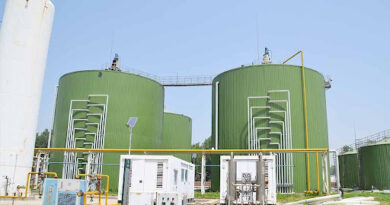Global Jobs in Renewable over 10 Million

Jobs in the renewable energy industry grew by 5.3 percent Year on Year (YoY) in 2017, creating more than half a million jobs in the past year. For India, in the midst of a major renewables push, this should be particularly heartening as the country looks to solve the twin problems of its energy mix and jobs challenge with the push.
According to the fifth edition of the Renewable Energy and Jobs – Annual Review, released by IRENA (International Renewable Energy Agency) on May 8th, nearly 500,000 jobs were created in 2017 by the renewable energy industry taking the risk number of jobs in the industry to 10.3 million jobs worldwide. The first time that figure has been surpassed marking the gradual but continuous rise of the Industry. Nearly 2.2 million jobs were created in the past two years from a total 8.1 million jobs in 2015 to 10.3 in 2017.
The solar PV industry with 3.4 million jobs remained the largest employer in the renewable sector. The year saw an unprecedented installation of nearly 94 GW in 2017, largely credited to the boom in the Chinese market. 2.2 million of the 3.4 million jobs in the global solar PV industry were accounted for by China, marking a 13 percent expansion over the previous year as per the report. China, The US, Japan, India and Bangladesh (in that order) were the top 5 recruiters in the field, accounting for nearly 90 percent of the global solar jobs.
According to Mr. Adnan Z. Amin, Director-General of IRENA, the global economy boost from the shift to renewables would create as many as 28 million jobs in the sector by 2050. The Wind industry accounted for 1.15 million jobs worldwide due to the lower degree of concentration and country specific nature of the industry. China employed nearly 50 percent of the global jobs in the field followed by Europe (30 percent) and North America (10 percent).
As the necessary transition from Coal to greener alternate energy sources rapidly proceeds, the former sector continues to lose its grasp over the energy sector. The fossil-fuels industry would lose millions of jobs with the shift in the status-quo. And the jobs created by the renewable sector will not consume the workers coming out of the coal industry largely due to the lack of knowledge and skills needed to work in the field.
“The energy transformation is one of improving economic opportunity and a rise in social wellbeing as countries implement supportive policies and attractive regulatory frameworks to fuel industrial growth and sustainable job creation,” said Dr. Rabia Ferroukhi, Head of IRENA’s Policy Unit and Deputy Director of Knowledge, Policy and Finance.
“By providing policymakers with this level of detail about the composition of renewable energy employment and skills requirements, countries can make informed decisions on several important national objectives, from education and training, to industrial policies and labour market regulations,” continued Dr. Ferroukhi. “Such considerations will support a fair and equitable transition to a renewables based energy system.”
In India, this requires a massive mindset change yet, despite the targets for renewables. The broader implications of a focus on renewables, driven by a need for a cleaner approach to our environment led challenges, be it waste treatment, water management or more, could actually mean a major multiplier over and above just renewable energy.
![]()




